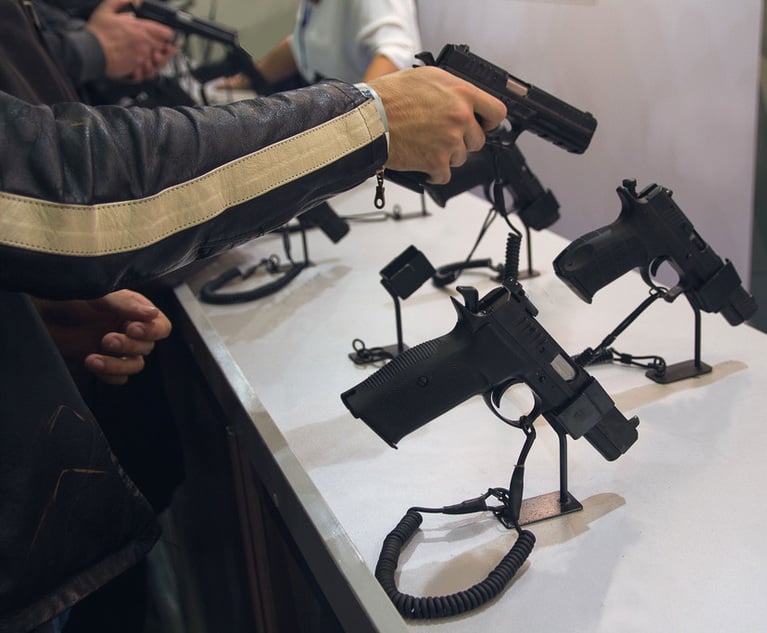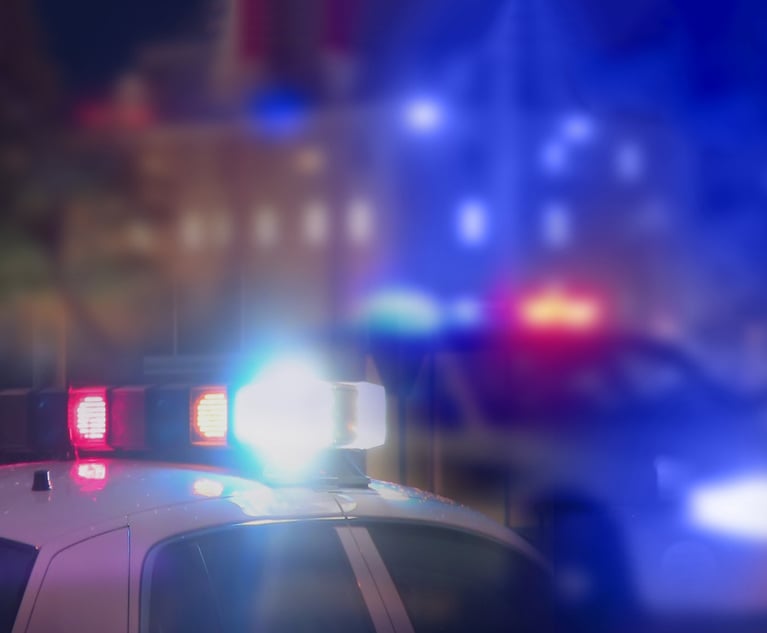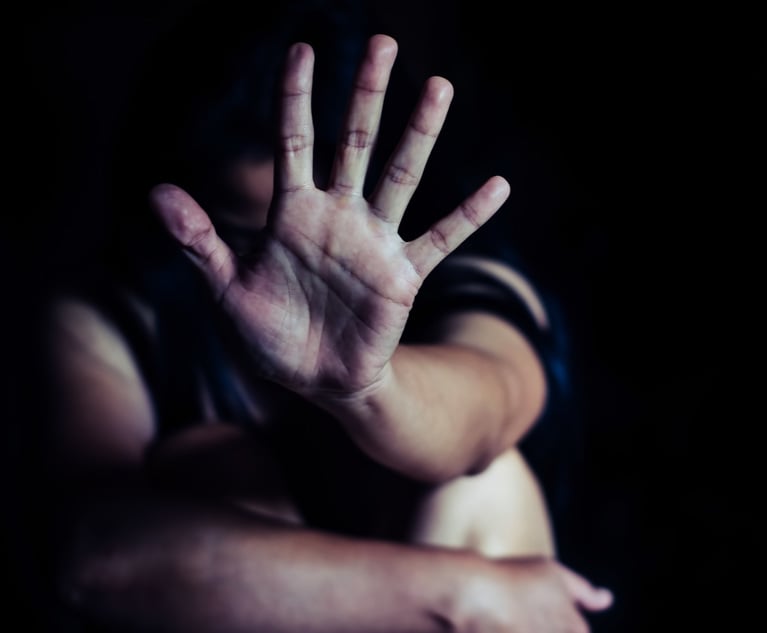Bridgegate Closures Not a Crime, Ex-Christie Aides Argue in Bid to Overturn Convictions
The politically motivated George Washington Bridge access lane closures at the center of the Bridgegate scandal were not a crime, co-defendants William Baroni Jr. and Bridget Kelly have asserted in appeals of their criminal convictions.
August 28, 2017 at 04:16 PM
14 minute read
The politically motivated George Washington Bridge access lane closures at the center of the Bridgegate scandal were not a crime, co-defendants William Baroni Jr. and Bridget Kelly have asserted in appeals of their criminal convictions.
In briefs filed on Friday with the U.S. Court of Appeals for the Third Circuit, Baroni and Kelly argued that their conviction under 18 U.S.C. §666 for allocation of public property based on political motives represents a misuse of that statute. Baroni and Kelly were convicted under the law's proscription on misapplication of government property, but they argue in court papers that their closure of toll booth access lanes used by Fort Lee residents merely allowed the use of those toll booths by other drivers. And the redirection of government property to a legitimate public use cannot be deemed a crime simply because it was done with an allegedly improper motive, Baroni and Kelly claim.
Baroni, a former deputy director at the Port Authority of New York and New Jersey, and Kelly, who was Gov. Chris Christie's deputy chief of staff, were convicted of a long list of charges in connection with the lane closures in November 2016. Prosecutors claimed that the traffic gridlock in Fort Lee that resulted was intended as a payback for a decision by that town's Democratic mayor, Mark Sokolich, not to endorse the re-election campaign of Christie, a Republican. U.S. District Judge Susan Wigenton issued sentences of 24 months in jail for Baroni and 18 months for Kelly. David Wildstein, another of Christie's Port Authority appointees who participated in the scheme, was sentenced to three years' probation after testifying against Baroni and Kelly.
This content has been archived. It is available through our partners, LexisNexis® and Bloomberg Law.
To view this content, please continue to their sites.
Not a Lexis Subscriber?
Subscribe Now
Not a Bloomberg Law Subscriber?
Subscribe Now
NOT FOR REPRINT
© 2025 ALM Global, LLC, All Rights Reserved. Request academic re-use from www.copyright.com. All other uses, submit a request to [email protected]. For more information visit Asset & Logo Licensing.
You Might Like
View All
Parents Must Be Responsible, or Face Possible Criminal Culpability for School Shootings
4 minute read
NJ Supreme Court Finds DWI Case 'Illuminates a Flaw' in Notification Procedures Post-'Cassidy'
6 minute read
NJ Justices Should Reverse Appellate Division Green Light for Glove Box Searches
4 minute read
Emerging Case Law Offers Support for Sexual Assault Victims Seeking Restraining Orders
6 minute readTrending Stories
- 1Arguing Class Actions: With Friends Like These...
- 2How Some Elite Law Firms Are Growing Equity Partner Ranks Faster Than Others
- 3Fried Frank Partner Leaves for Paul Hastings to Start Tech Transactions Practice
- 4Stradley Ronon Welcomes Insurance Team From Mintz
- 5Weil Adds Acting Director of SEC Enforcement, Continuing Government Hiring Streak
Who Got The Work
J. Brugh Lower of Gibbons has entered an appearance for industrial equipment supplier Devco Corporation in a pending trademark infringement lawsuit. The suit, accusing the defendant of selling knock-off Graco products, was filed Dec. 18 in New Jersey District Court by Rivkin Radler on behalf of Graco Inc. and Graco Minnesota. The case, assigned to U.S. District Judge Zahid N. Quraishi, is 3:24-cv-11294, Graco Inc. et al v. Devco Corporation.
Who Got The Work
Rebecca Maller-Stein and Kent A. Yalowitz of Arnold & Porter Kaye Scholer have entered their appearances for Hanaco Venture Capital and its executives, Lior Prosor and David Frankel, in a pending securities lawsuit. The action, filed on Dec. 24 in New York Southern District Court by Zell, Aron & Co. on behalf of Goldeneye Advisors, accuses the defendants of negligently and fraudulently managing the plaintiff's $1 million investment. The case, assigned to U.S. District Judge Vernon S. Broderick, is 1:24-cv-09918, Goldeneye Advisors, LLC v. Hanaco Venture Capital, Ltd. et al.
Who Got The Work
Attorneys from A&O Shearman has stepped in as defense counsel for Toronto-Dominion Bank and other defendants in a pending securities class action. The suit, filed Dec. 11 in New York Southern District Court by Bleichmar Fonti & Auld, accuses the defendants of concealing the bank's 'pervasive' deficiencies in regards to its compliance with the Bank Secrecy Act and the quality of its anti-money laundering controls. The case, assigned to U.S. District Judge Arun Subramanian, is 1:24-cv-09445, Gonzalez v. The Toronto-Dominion Bank et al.
Who Got The Work
Crown Castle International, a Pennsylvania company providing shared communications infrastructure, has turned to Luke D. Wolf of Gordon Rees Scully Mansukhani to fend off a pending breach-of-contract lawsuit. The court action, filed Nov. 25 in Michigan Eastern District Court by Hooper Hathaway PC on behalf of The Town Residences LLC, accuses Crown Castle of failing to transfer approximately $30,000 in utility payments from T-Mobile in breach of a roof-top lease and assignment agreement. The case, assigned to U.S. District Judge Susan K. Declercq, is 2:24-cv-13131, The Town Residences LLC v. T-Mobile US, Inc. et al.
Who Got The Work
Wilfred P. Coronato and Daniel M. Schwartz of McCarter & English have stepped in as defense counsel to Electrolux Home Products Inc. in a pending product liability lawsuit. The court action, filed Nov. 26 in New York Eastern District Court by Poulos Lopiccolo PC and Nagel Rice LLP on behalf of David Stern, alleges that the defendant's refrigerators’ drawers and shelving repeatedly break and fall apart within months after purchase. The case, assigned to U.S. District Judge Joan M. Azrack, is 2:24-cv-08204, Stern v. Electrolux Home Products, Inc.
Featured Firms
Law Offices of Gary Martin Hays & Associates, P.C.
(470) 294-1674
Law Offices of Mark E. Salomone
(857) 444-6468
Smith & Hassler
(713) 739-1250






